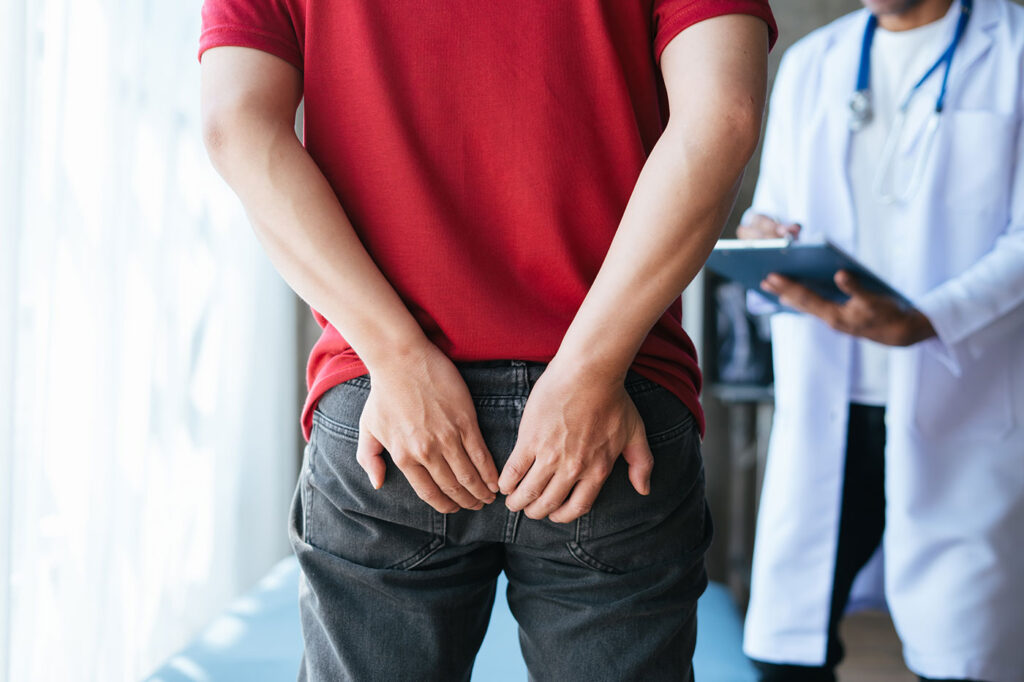If you’re dealing with hemorrhoids—swollen blood vessels in and around the anus—you may experience discomfort, itching, or even bleeding during bowel movements. These symptoms can be distressing, and it’s natural to wonder if hemorrhoids could also contribute to bloating and gas.
In this blog, we’ll address common questions, such as:
It will also share how to safely pass gas with hemorrhoids and manage other hemorrhoids symptoms.

Hemorrhoids, also known as piles, don’t directly cause bloating or gas. However, internal hemorrhoids can make passing gas or stool more difficult. This can lead to a gas buildup in your body, contributing to bloating and discomfort. Additionally, because stool may stay in your bowels for longer periods of time, hemorrhoids may contribute to smelly gas once it is eventually passed.
If you want relief from hemorrhoid-related gas buildup, add more fiber to your diet. This lifestyle change may help relieve bloating, constipation, and gas associated with hemorrhoids.
Also, when eating or drinking, avoid talking as both habits can contribute to gas development. You may also want to eliminate foods that can increase gas production, including:
For temporary relief, consider over-the-counter gas relief medications, such as simethicone, to break up gas bubbles and make it easier to pass gas.
Inflamed internal hemorrhoids can make it harder to release gas, because they can interfere with normal bowel movement. This combination can lead to abdominal pain and bloating, causing you to retain gas for extended periods of time.
While hemorrhoids do cause gas and bloating, they can also lead to anal itching and discomfort. You may notice bright red blood in your stool, or experience bleeding after passing a bowel movement. Some internal hemorrhoids can prolapse out of the anus. Depending on the severity of your hemorrhoids, the prolapsed hemorrhoid may or may not be able to be repositioned manually.
To alleviate these symptoms, it’s important to pursue treatment options. When symptoms are mild, you could find relief with simple lifestyle changes such as:
Changing your bathroom habits may also be helpful.
Patients with grade 2 or 3 internal hemorrhoids will likely need to pursue hemorrhoid removal to find symptom relief. You can eliminate swollen blood vessels in the anus with a procedure called hemorrhoid artery embolization (HAE)—a minimally invasive treatment option that causes your hemorrhoids to shrink after cutting off blood flow to the affected vessels.
If you’re struggling with hemorrhoid pain and want to find out if you’re a candidate for HAE, request a consultation with the interventional radiologists at the Georgia Hemorrhoid Institute.

Atlanta
3225 Cumberland Blvd. Southeast, Suite 520
Atlanta, GA 30339
Stockbridge
1035 Southcrest Dr., Suite 220 + 250
Stockbridge, GA 30281
Tucker
1975 Lakeside Pkwy., Suite 300
Tucker, GA 30084
Scheduling
Please contact our dedicated specialists to schedule a consultation today.
2025 Georgia Hemorrhoid Institute. All rights reserved. Website Design by Healthcare Success